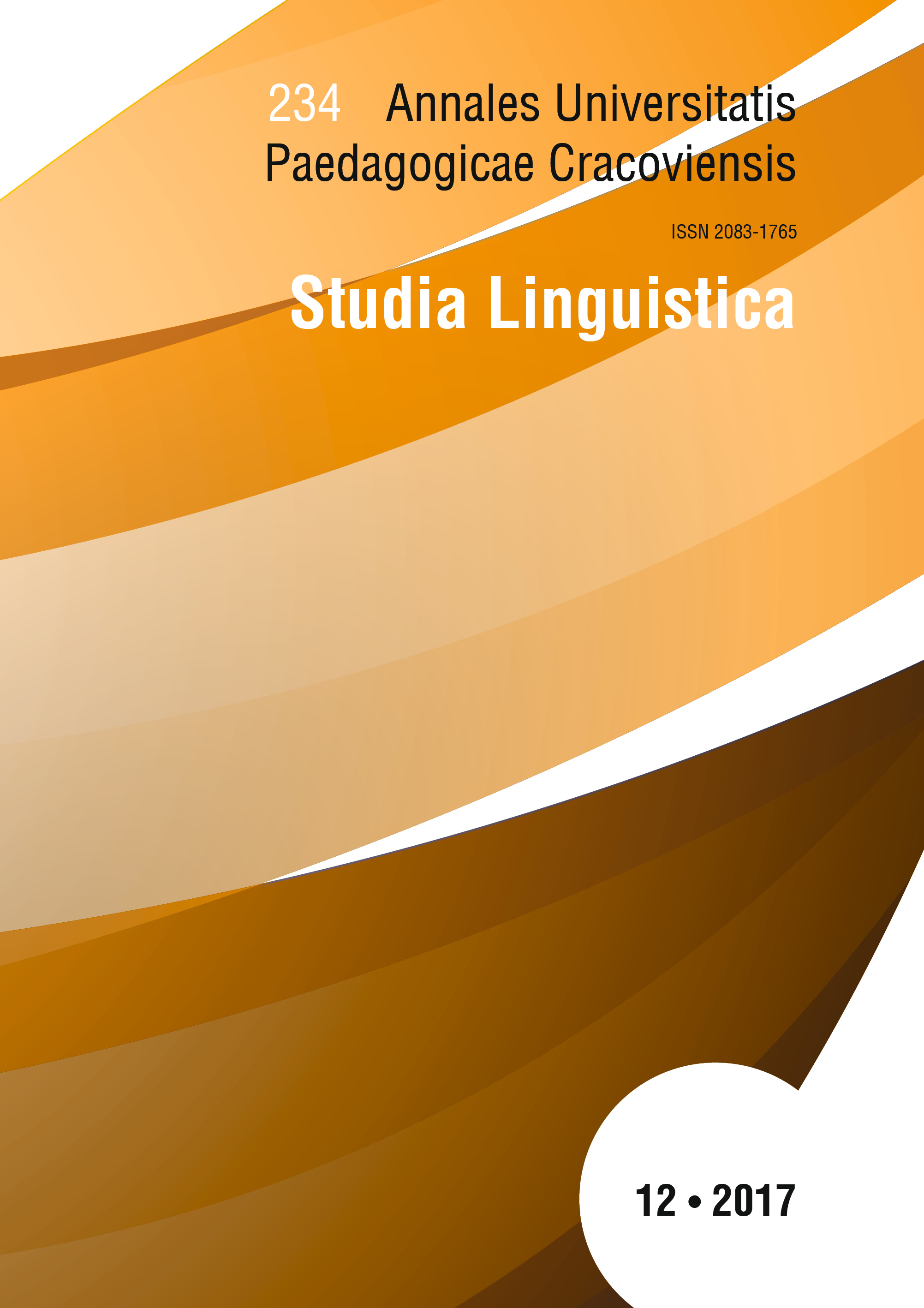Once more on aorist in the Old Polish
Main Article Content
Abstract
An analysis of examples of the past perfect tense composed of a singular and plural past tense participle and an aorist form of the ‘to be’ verb in the singular third person form used as an auxiliary word is given in the article. The author, referring to the research of W.R. Rzepka, presents three consecutive examples from the mediaeval court oaths, where the aorist by has the meaning of ‘był’ (past form of the to be verb in Polish).
Downloads
Article Details
Author, submitting a text to the editorial board of the journal “Annales Universitatis Paedagogicae Cracoviensis. Studia Linguistica", certifies that the content of the article has not been published so far and that the work does not violate in any way the copyright or related rights of other person, as well as other rights of third parties, and that no one's rights to the work (or any part thereof) have been missed. After signing the contract, the property rights to the published materials are transferred to the University of the National Education Commission, Krakow.
“Annales Universitatis Paedagogicae Cracoviensis. Studia Linguistica” is an open access journal, and all its content is made available free of charge to users and institutions under the Creative Commons CC-BY-NC-ND 4.0 license (attribution, non-commercial use, no derivative works). Under this license, the authors agree that their work may be lawfully reused for any purpose, except for commercial purposes, without the prior consent of the author or publisher. Everyone can read, download, copy, print, distribute and process these works, provided that the author's marking and the original publication place are correct. Published texts may not be used to create derivative works (e.g. to translate and publish in another language without the consent of the publisher). This is in line with the BOAI (Budapest Open Access Initiative) definition. "Studia Linguistica" does not charge for submitting or processing articles.
References
Łoś J., 1927, Gramatyka polska. Cz. 3: Odmiennia (fleksja) historyczna, Lwów.
Google Scholar
Gebauer J., 1909, Historická mluvnice jazyka českého, díl III: Tvarosloví, II: Časování, vydání druhé, Praha.
Google Scholar
Rzepka W.R., 2001, Glosa do staropolskiego czasu zaprzeszłego z aorystycznym słowem posiłkowym, [w:] Studia Historycznojęzykowe nr 26. Prace Językoznawcze UŚ, Katowice, s. 202–211.
Google Scholar
Kowalewicz H., Kuraszkiewicz W. (red.), 1959–1981, Wielkopolskie roty sądowe XIV–XV wieku, t. I–V, Poznań–Warszawa–Wrocław.
Google Scholar
Twardzik W. i in., 2005, Opis źródeł Słownika staropolskiego, Kraków.
Google Scholar
Rzepka W.R., Twardzik W., 1997, Archaizmy fleksyjne w „Rozmyślaniu przemyskim”. 3. Formy z aorystycznym „by” (3. os. lp. czasownika „być”), „Język Polski” LXXVII, s. 41–46.
Google Scholar
